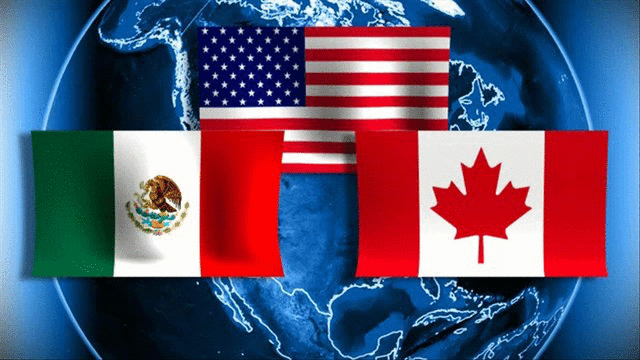By Jeff Ferry, CPA Research Director
An independent public opinion poll published late last year shows growing public awareness of US job loss due to imports, as well as growing public support of the view that NAFTA has been bad for the US.
The poll was carried out by the University of Maryland’s School of Public Policy, surveying 2,745 Americans. The report is entitled: Globalization and Trade, A Study of American Attitudes. The researchers conducting the poll compared the results to similar polls in 2016 and in 1999. The results show a clear trend of greater awareness of the negative consequences of unfettered free trade.
The pollsters asked the panel if they agreed with the statement “On balance, do you think that more jobs are lost from imports or more jobs are gained from exports?” The panel agreed strongly that more jobs were lost from imports, with a 59% majority agreeing. That’s up from 46% in 1999. The panel also agreed with the statement that trade has contributed to widening the gap between rich and poor in the US.
Commented the pollsters in their report: “In late 2016 there was an extraordinary increase in the view that more jobs are lost from imports than are gained from exports…Consistent with the view that US trade policy does not serve the interests of the American public and American workers, but rather multinational corporations, a solid bipartisan majority perceives that trade has increased the gap between rich and poor.”
In fact, free trade economists have long promoted a rule of thumb that each $1 billion of exports generates approximately 6,000 US jobs. Under that logic, it is mathematically true that each $1 billion increase in imports eliminates a similar number of jobs, and since the US trade deficit has risen dramatically in recent years, more jobs have been lost than gained due to trade. For example, in 1994, the year NAFTA took effect, the US trade deficit was $98 billion. Last year it was just over $500 billion. An additional $400 billion in deficits equates to 2.4 million jobs lost due to trade deficits over those 22 years.
NAFTA: Bad or Good?
The pollsters’ questions on NAFTA showed a sharp rise in the number of Americans saying that NAFTA has been bad for the US. In response to the question “Do you think the North American Free Trade Agreement has been good or bad for the United States?” 46% responded that NAFTA has been bad. That figure is up dramatically from the 1999 figure of 30%. However, there was still a bare majority, 51%, saying NAFTA was good for the US. On this question there is a sharp divergence depending on which political party respondents identify with. “Large majorities of Republicans now say that NAFTA has been bad for the US while large majorities of Democrats say it has been good,” the pollsters commented. This is a reversal in historical support in which GOP voters were more likely to support NAFTA than Democratic voters. This shift may track the shift in white working class support from Democrats to Republicans in recent years.
Finally, the pollsters found very broad support for the idea that trade agreements should require countries to adopt internationally agreed labor standards and environmental standards, and support for these propositions has increased since 1999. In response to the statement, “Countries who do not maintain minimum standards have an unfair advantage because they can exploit workers and produce goods for less. This threatens jobs for American workers,” 82% of Americans said they found that statement convincing. That’s up from 74% in 1999. Commented the pollsters: “An overwhelming bipartisan majority favors having labor standards in trade agreements as a way of ensuring that countries do not get unfair advantages from low standards and for moral reasons…An overwhelming bipartisan majority—77% in 2016—also said that wages abroad should be allowed to rise by allowing workers to organize into unions and by putting a stop to child labor.”
The NAFTA agreement between the US, Canada, and Mexico, is currently being renegotiated. Mexico’s low and stagnant real wages have featured prominently as an issue for US negotiators. CPA’s labor member unions, the AFL-CIO and the Teamsters, have argued prominently to apply labor standards, including recognition of truly independent labor unions, to Mexico to address the issue of Mexico’s low wages. The CPA documented the downward pressure of Mexican wages on US wages in the automotive and other industries in its testimony in US Commerce Department hearings on NAFTA earlier this year.













